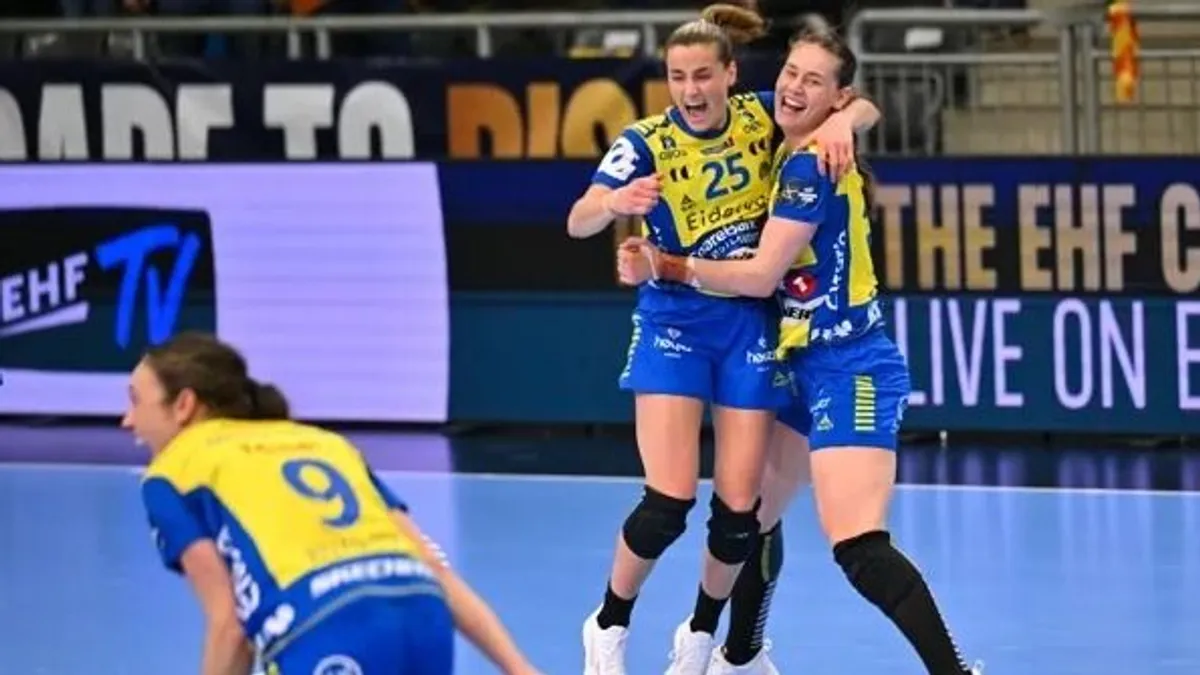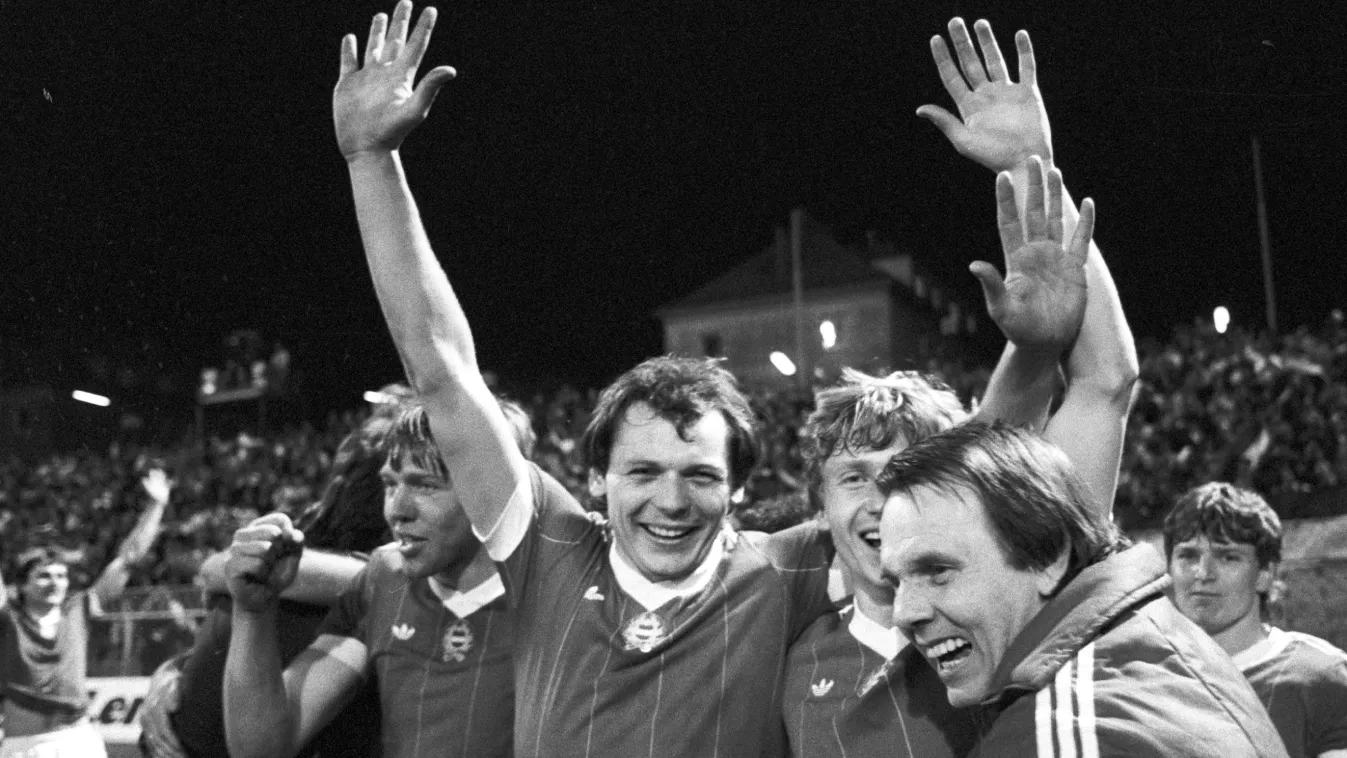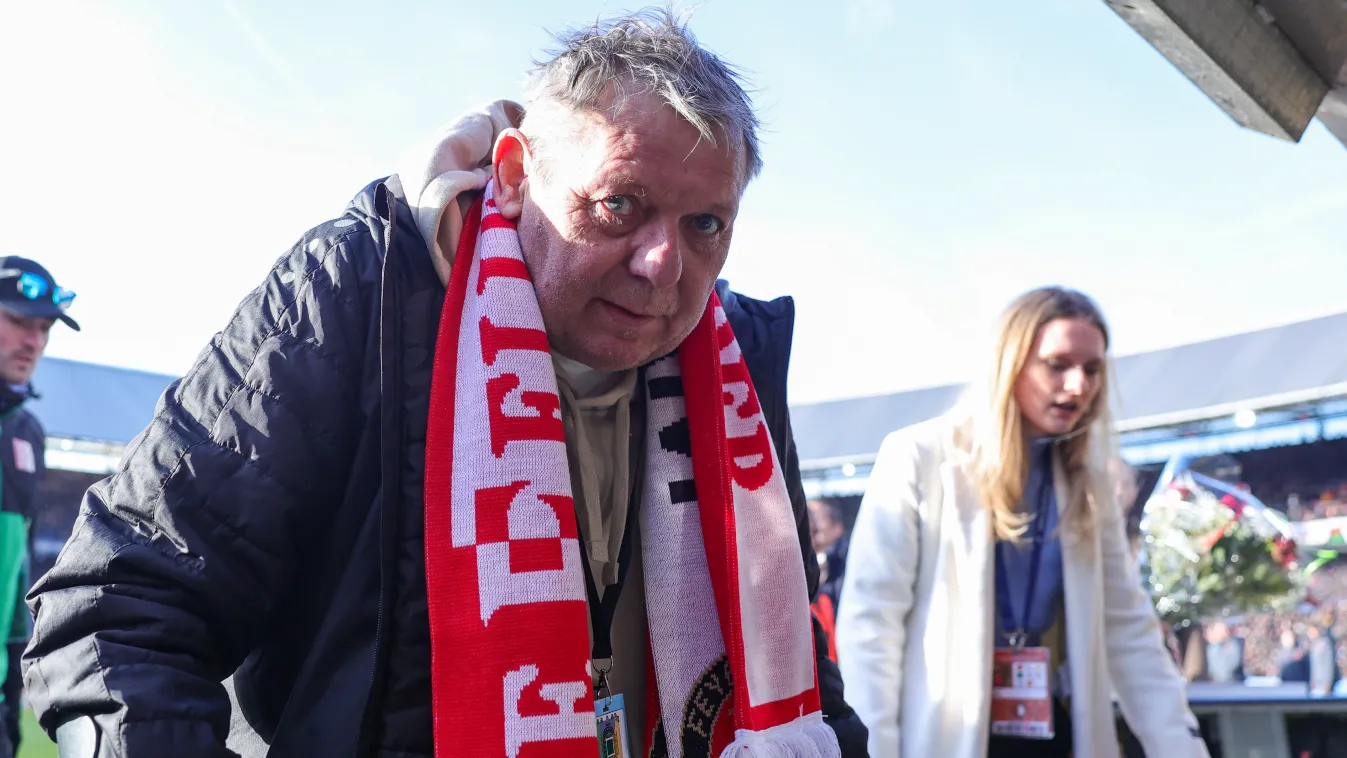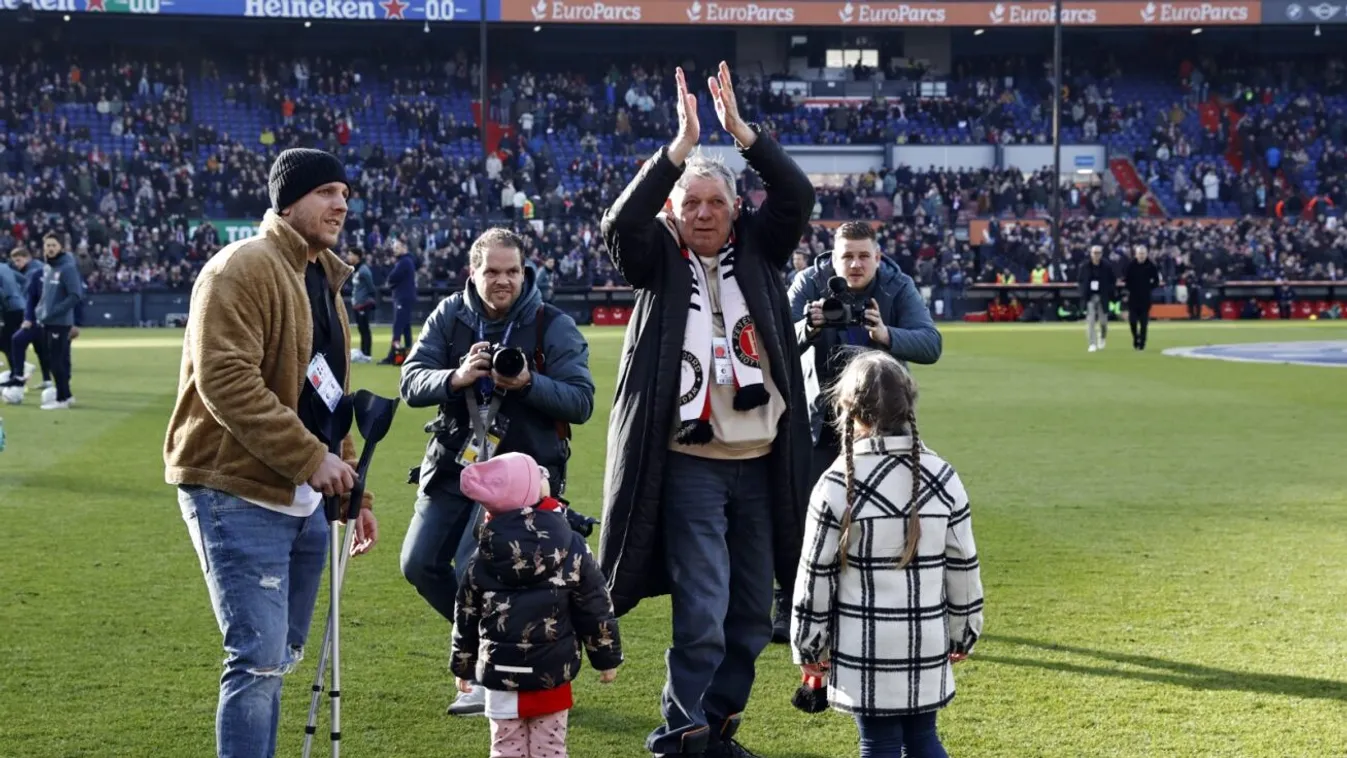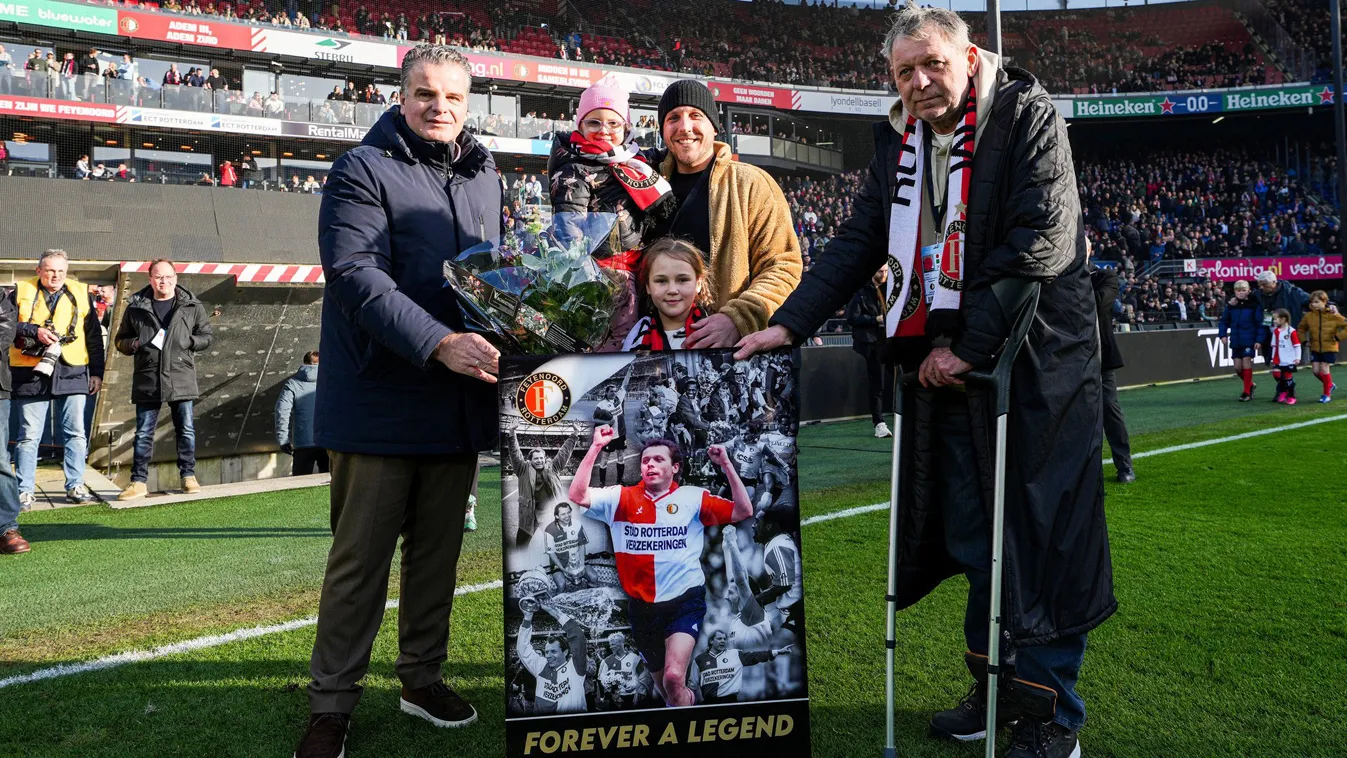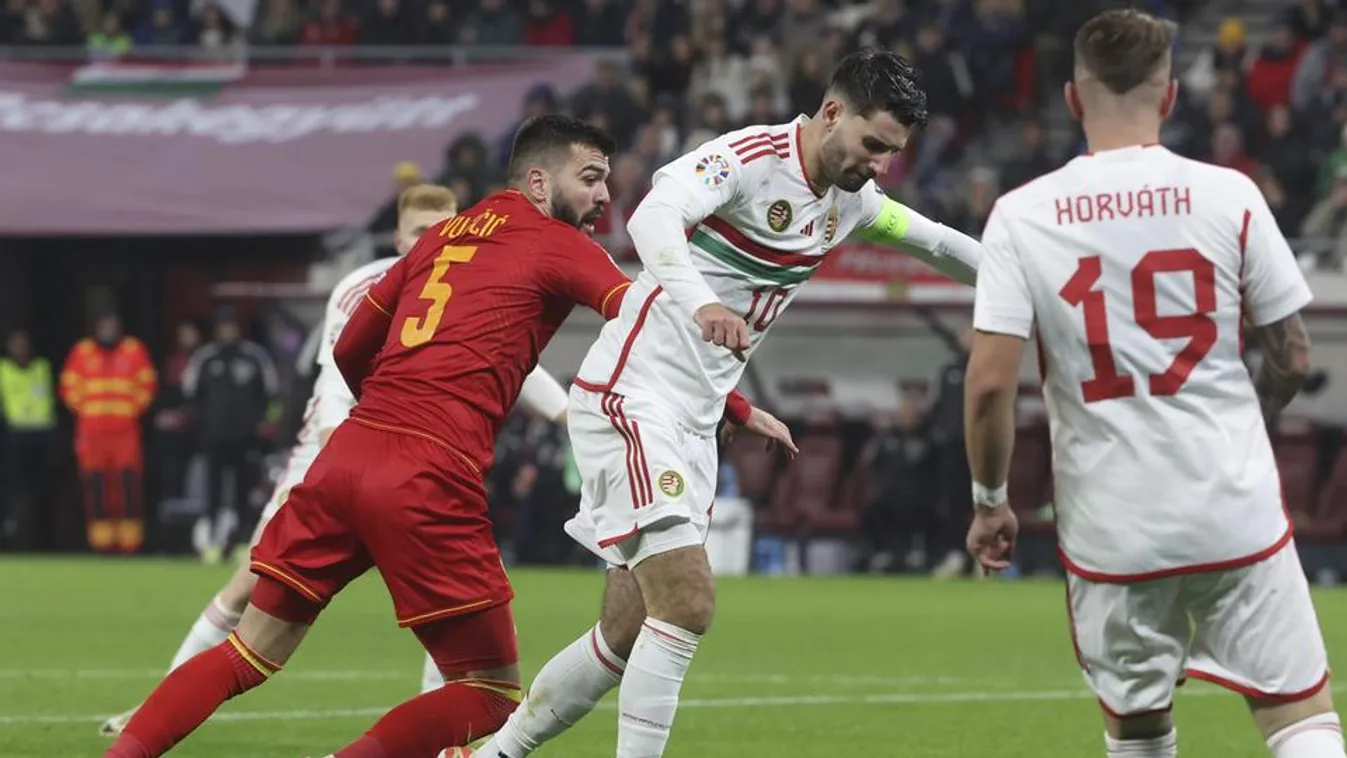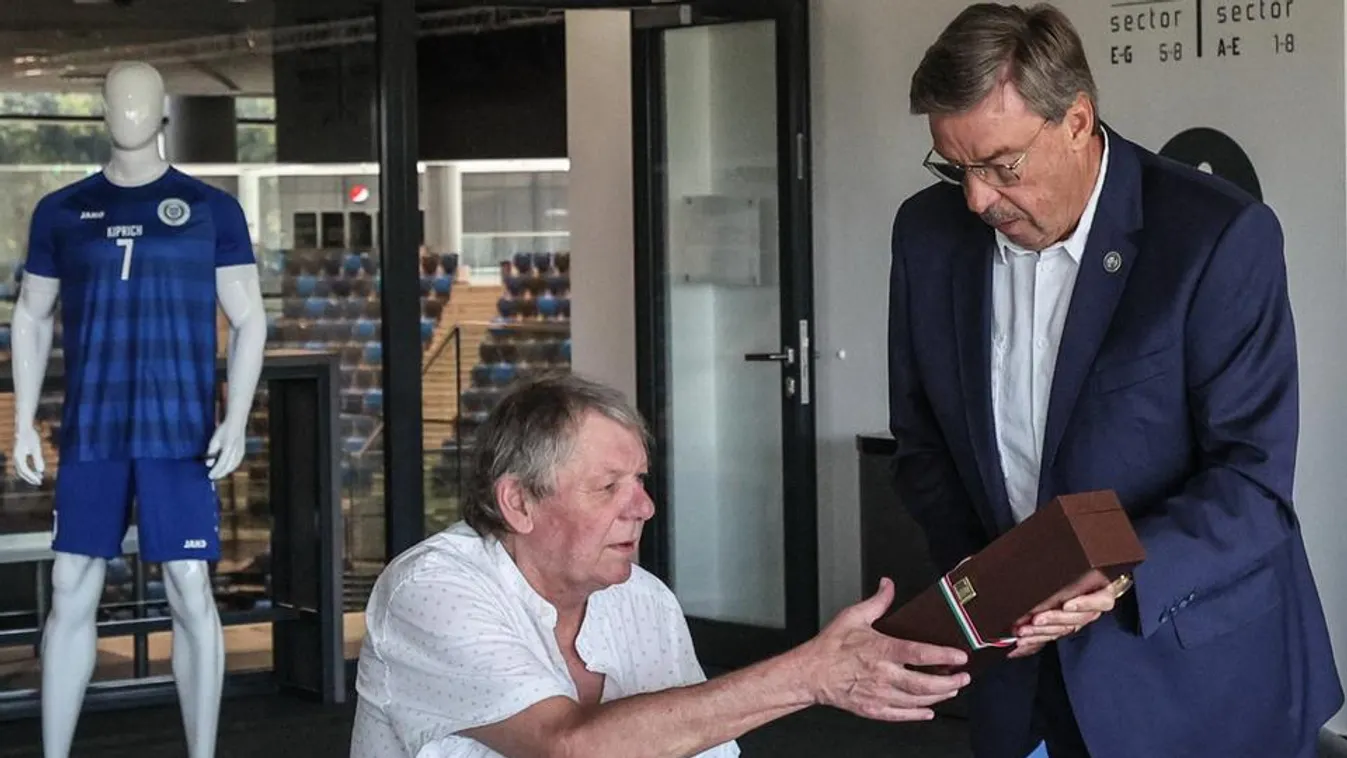30 years ago, Hungary led Ukraine to the world football scene
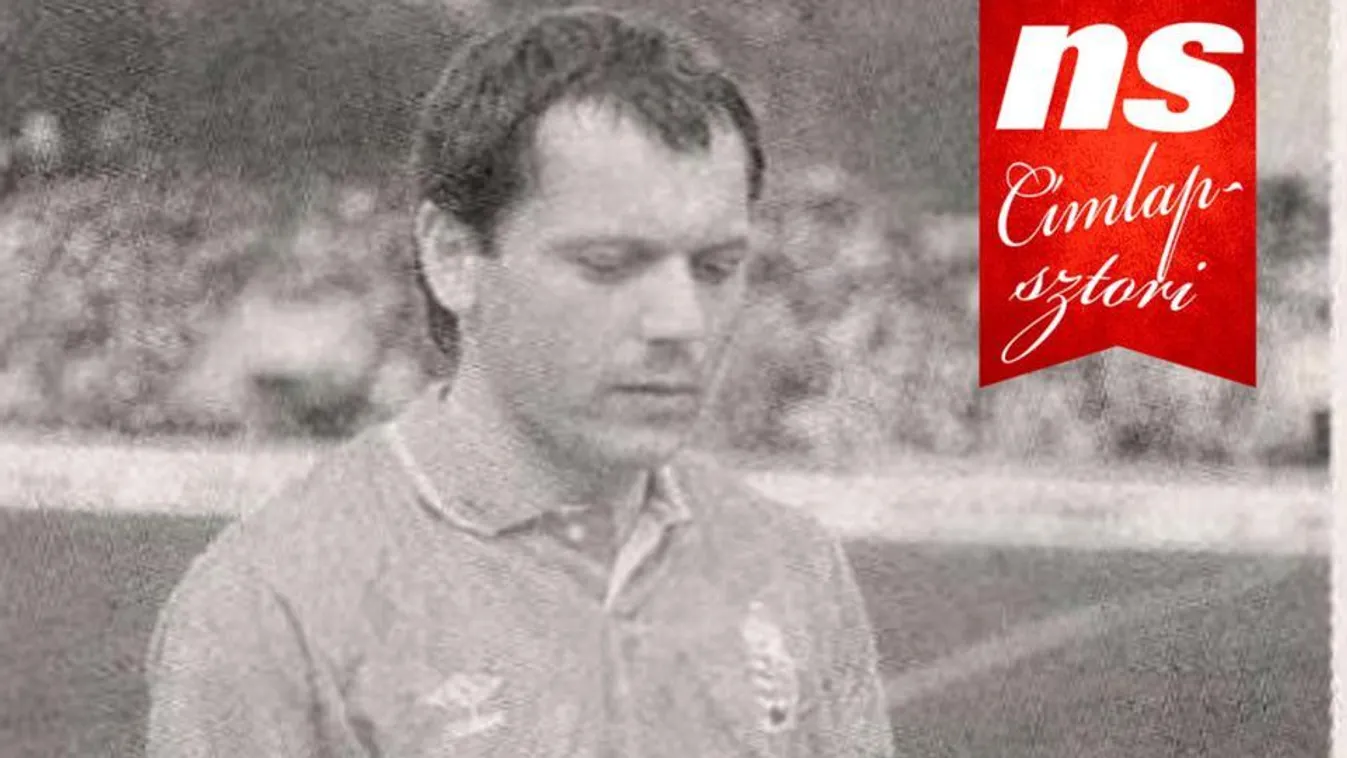
Due to the milestone anniversary, we would have paid special attention to the memorable Ukraine-Hungary national team match played 30 years ago, but the recent news in world politics and the events of the Russian-Ukrainian war that began about two months ago, give a strange and sad topicality to the subject. Mainly because at the moment the existence, survival of an independent Ukrainian state is one of the stakes of the war, and this football match was one of the important cultural events of the strengthening of an independent Ukraine born with the dissolution of the Soviet Union – if you will, reborn, since with slightly different borders then, the Ukrainian People's Republicwas established in 1917, which was occupied by the Red Army in 1920 and merged into the Soviet Union in 1922.
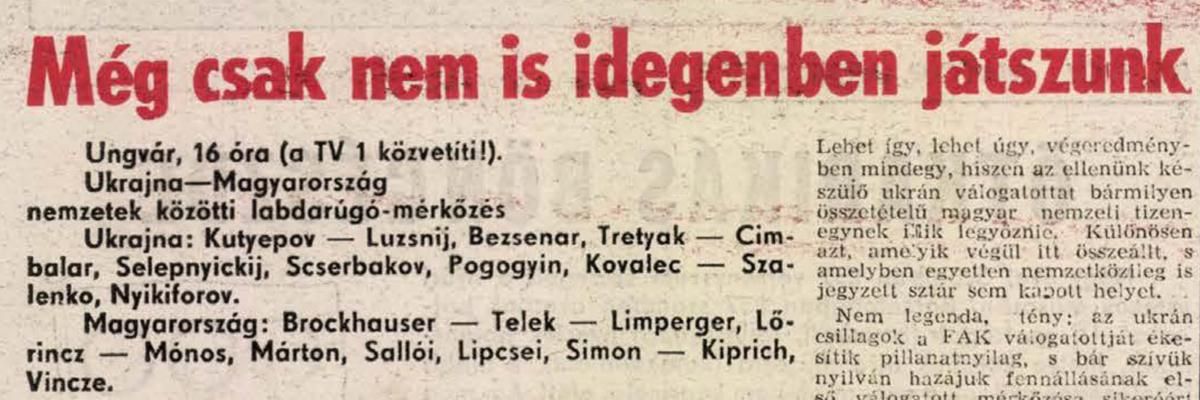
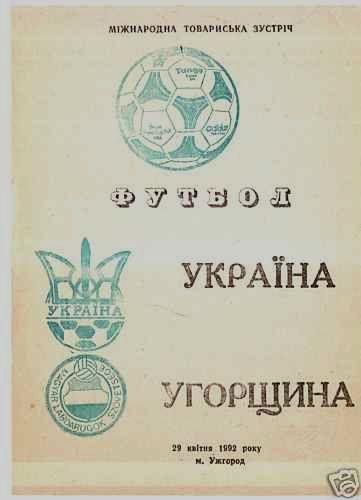
It is also a Hungarian joy to be at the cradle
"Hungary is leading Ukraine to the world football scene," Nemzeti Sport wrote on its front page on the day of the match, and despite the pathetic title, there was no exaggeration in it.
Ukraine declared independence on August 24, 1991, supported by the majority of Ukrainians in a referendum held on December 1. The solemn tone remained a feature of the coverage of the match throughout.
"We'll face a never-before national team match," our newspaper heralded. “On Wednesday, in Uzhhorod, coach Imre Jenei's eleven will meet with a new team of a new country to complete a diplomatic mission,make a friendly gesture, and lastbut not least, to measure themselves before the World Cup qualifiers, which begin in June. Until now, Ukraine had no way of forming a football teambecause when it gained independence, Ukrainians either did not know footballor their smaller problems were bigger than having to pay attention to the game. This will be Hungary's newborn neighboring country's first international match, and that is why these 90 minutes will be a more significant, even if not the most important, event than any subsequent clash. Something begins, something is born, and we Hungarians can be at the cradle. It does matter how we look in the memory book."
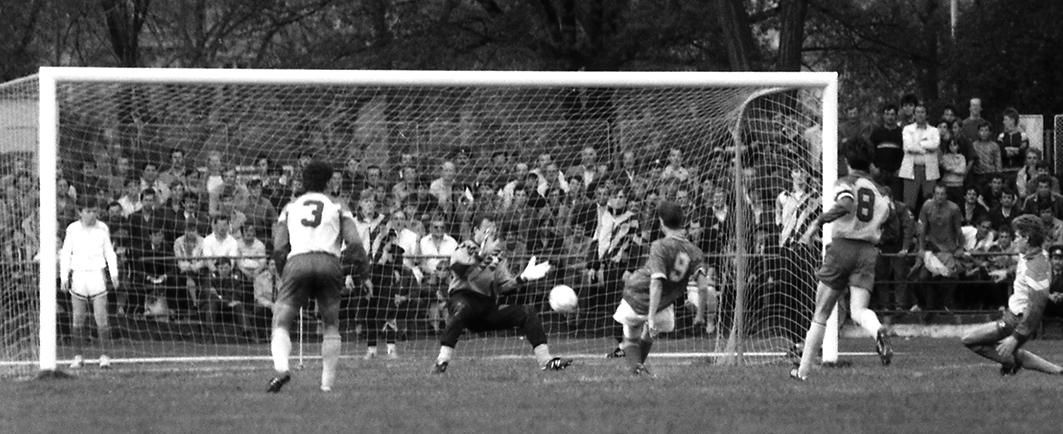
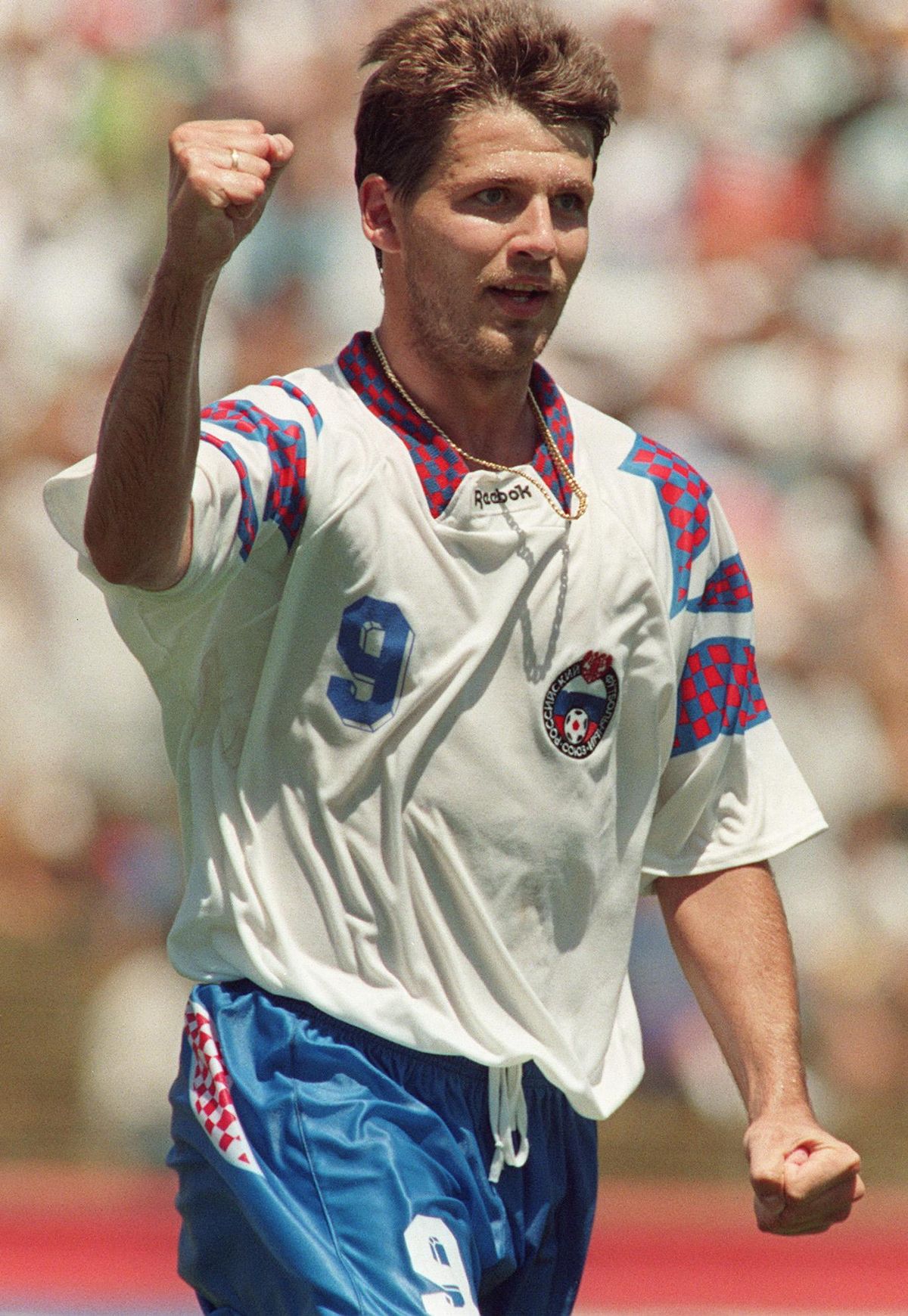
Hungary not only became the first match partner of the Ukrainian national teambut also helped to establish the football federation of the neighboring country. At the beginning of 1992, a delegation led by the head of the forming Ukrainian federation, Viktor Bannikov, arrived in Hungary to study the operation of the Hungarian federation up close at the Hungarian Football Federation (MLSZ)when Mihály Laczkó was the president. After the resulting relationship, the idea arose to conduct a national team match against each other.
Zoltán Magyarhas gained inexhaustible merits in organizing the historical clash. He has a family connection to Zakarpattia – his mother was born in Berehove. Magyarhas previously worked as the department director for Ferencváros, then worked as the manager of the U21 national team, and later became known as the manager of the Hungarian Olympic and national team. He now manages the Hungarian parliamentary national team as their head coach. He suggested to Viktor Bannikov that Ukraine should not play the first match of its history with Canada (the North American country emerged as an opponent in the Ukrainian federation because there is a large Ukrainian expatriate community living there), but with Hungary, which has already proven its friendly attitude towards the new neighbor in countless ways and wanted to strengthen the relationship with this match as well. Zoltán Magyar also initiated the match to take place in Zakarpattia, Uzhhorod, instead of Kyiv because there were almost two hundred thousand Hungarians living in that area. "We don't even play away from home," Nemzeti Sport noted in its title.
Although the venue, the Avanhard Stadium, was a rather weathered facility at the time, the choice proved to be a hit: the 12,000-seat stadium was packed with 15-16 thousand fans. "An idealistic, paradisiacal state prevailed, perhaps there were more Hungarian flags in the stands than Ukrainian, but that was not the point. Everyone loved everyone." Zoltán Magyar recalled.
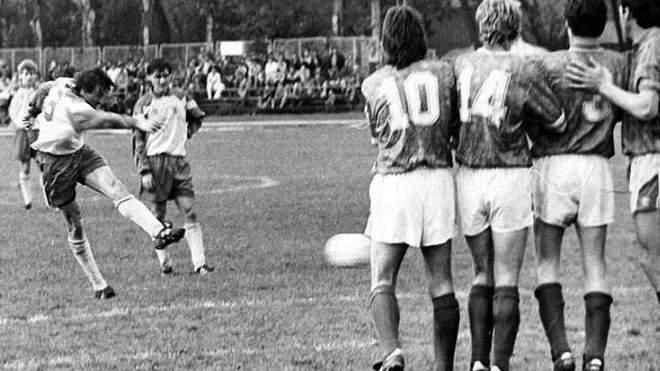
Sports journalist Stepan Selmensky, an outstanding former FIFA referee who was a member of the organizing committee of the match at the time in 1992, remembered dearly the Hungarians'contribution.
| "The Ukrainian team was a dark horse for us, we didn't know the players, of course, we didn't have any video footage of them, we had no idea what to expect. But we had a good team and we proved that in the second half. I scored two goals, it is a memory forever, as is the fact that the hosts greetedme as the team captain with bread and salt.” József KIPRICH, 76-time capped player and then-team captain |
| "I made my debut for the national team on that day, and I scored a goal right away, it couldn't have been better. Thanks to the many Hungarian fans, we played in an almost domestic environment. Later, in Beitar Jerusalem, Serhiy Tretyak was my teammate, with whom we were very nostalgic about that match. I also attended the 25thanniversary game." István SALLÓI, former national team player capped 13 times |
| "We didn't know the opponent, but we showed them a lot of respect because they were students of the Soviet football school. The match was very important for the Hungarians there, so we took it very seriously, we wanted to win in any way. I'm glad I assisted, the game achieved its goal and even served the preparation against the English." István VINCZE, former national team player capped 44 times |
| "Three Nemzeti Sport journalists traveled to Uzhhorod, and I remember that for some reason we were taken to Uzhhorod by helicopter from near Budaörs, and we were there in half an hour. I had not been in a helicopter before or haven't been in one ever since. After the game, we submitted the article, we got on the helicopter, and I think it was only once in the history of reporting from abroad that we got back to the editorial office before the article was laid out." Károly LAKAT T., former editor of Nemzeti Sport, covered the match |
"The Ukrainian federation, which was formed at the time, was very pressed for time because according to FIFA rules, an official match had to be played within a short period of time in order for the Ukrainian Football Association to be officially admitted to FIFA and UEFAso that we could compete in the European Championship and then the World Cup. The Hungarians were the first to apply, and from there, it was only a matter of organization to implement the match in Uzhhorod,"Lajos Jakab quoted his words in an article published in the weekly newspapers KárpátInfo and Kárpátalja.
Ivan Verbitsky, a sports journalist quoted in the same two articles, revealed on a TV program that the historic match was originally scheduled for April 22 in Kyiv, but the Ukrainian federation did not even have enough money to cover the Hungarians' travel expenses. As he said, the jerseys of the Ukrainian national team were also difficult to manufacture, the logo of the Ukrainian Football Federation also had a Russian inscription on it, and the huge letter D on the jersey of the goalkeeper IhorKutyepov indicated that Dynamo Kyiv's goalkeeping jersey was on it...
István Sallói made his debut with a goal
The head coach of the Ukrainian national team was officially Viktor Prokopenko, who was also the head coach of Chornomorets, but the coach trio of Anatoli Puzach, ValeriYaroshenko, and Prokopenko selected the squad members essentially from three club teams: Chornomorets, Dynamo Kyiv and Shakhtar Donetsk, butthen trainer Valery Lobanovsky, who was working in the United Arab Emirates at the time, was also taken into as a consultant.
The Ukrainians had no chance to assemble the strongest national team. On the one hand, the Ukrainian federation had no money to travel their stars playing abroad (Oleg Kuznetsov, Oleksiy Mikhailenko – both Glasgow Rangers, Gennady Litovchenko, Oleg Protasov – both Olympiakos, Serhiy Yuan – Benfica, Oleksandr Zavarov – Nancy or the former Ballon d'Or winner from Kyiv, Igor Belanov, who was in Braunschweig, Germany about to retire. On the other hand, they started the 1992 European Championship qualifiers as the Soviet Unionand were the only ones that advanced from the group which included Hungary too and could only participate as part of the Commonwealth of Independent States(CIS) at thetournament in Sweden. Also, for Ukrainians who wanted to be included in the European Championship squad,wearing the Ukrainiancoat of arms was impossible. It was also telling that, according to the Ukrainian short film about the event, no Ukrainian player sang the new country's national anthem...
However, the Hungarian team managed by head coach Imre Jenei could stand up with its best players, as the match was an excellent preparation opportunity not only for the World Cup qualifiers in the fall but also for the clash against England 12 days later.
The first half of the same was disappointing, the Hungarian team, which was considered the better team, struggledand started the second half goalless. The Hungarian national team's superiority in knowledge then became visible. For this, the first goal scored by István Sallói, who made his debut in this match, was very important in the 62nd minute when he struck the ball into the middle of the goal from five meters after István Vincze's pass.
"Finally!" the sigh of relief broke out from commentator László Gulyás in the TV broadcast, and then six minutes later, József Kiprich bombed the ball into the bottom left corner, and in the 84th minute, he scored from a penalty. The home side also had a beauty patch: in the 92nd minute, Ivan Hetsko from Zakarpattiaruthlessly strucka freekick from 20 meters with his left foot.Everyone could be satisfied with the 3-1 result, the spectators celebrated, according to countless recollections, elderly Zakarpattian Hungarian fans tearfully thanked the Hungarian national team for the fact that they traveled to Uzhhorod, won, and they could see this live.
Ballon d'Or, hosting the European Championship, Champions League final
Although the Ukrainian team playing its first match had virtually no chance of winning, four months later,the "rematch" in Nyíregyháza on August 26 (the two teams have not played each other since) showed that there is potential in the players, and although they lost 2-1 again, KálmánKovács could only equalize in the 81st minute, and Tibor Nagy scored the winning goal in the 92nd minute. Ukrainian football soon began to develop significantly and overtook the Hungarian one. Dynamo reached theChampions League semifinals in 1999, Shakhtar won the UEFA Cup in 2009, the national team reached the last eight at the World Cup in 2006, two years before that, in 2004, Milan's foreign player Andriy Shevchenko won the Ballon d'Or, the country together with Poland hosted the European Championship in 2012, and Kyiv was the home for Champions Leaguefinal in 2018.
We do not know whether there will be any continuation of the successes and what the fate of Ukraine will be, but Ukrainian football was born thirty years ago and started its coming-of-age path there, in the rusty Uzhhorod Stadium against Hungary.

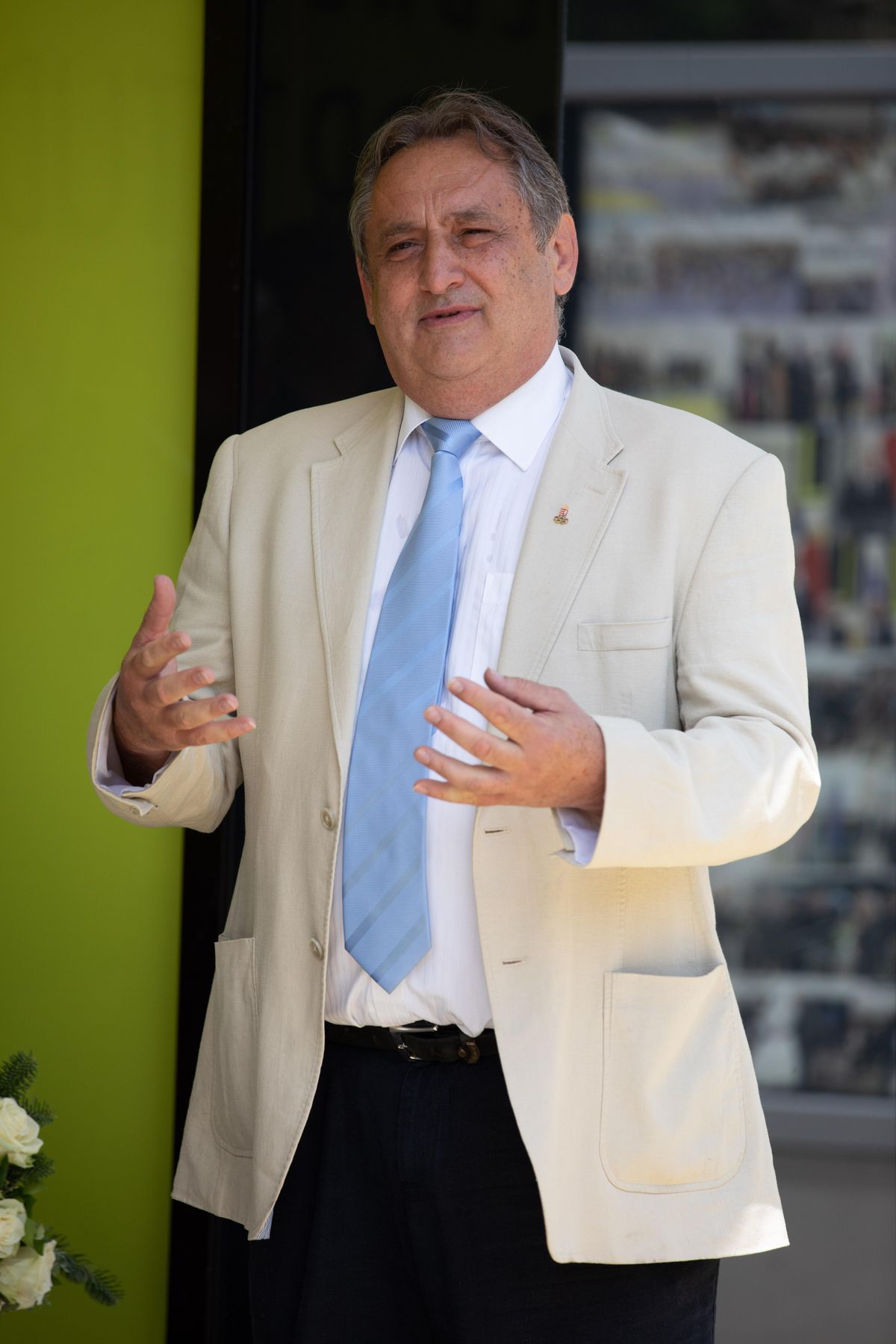
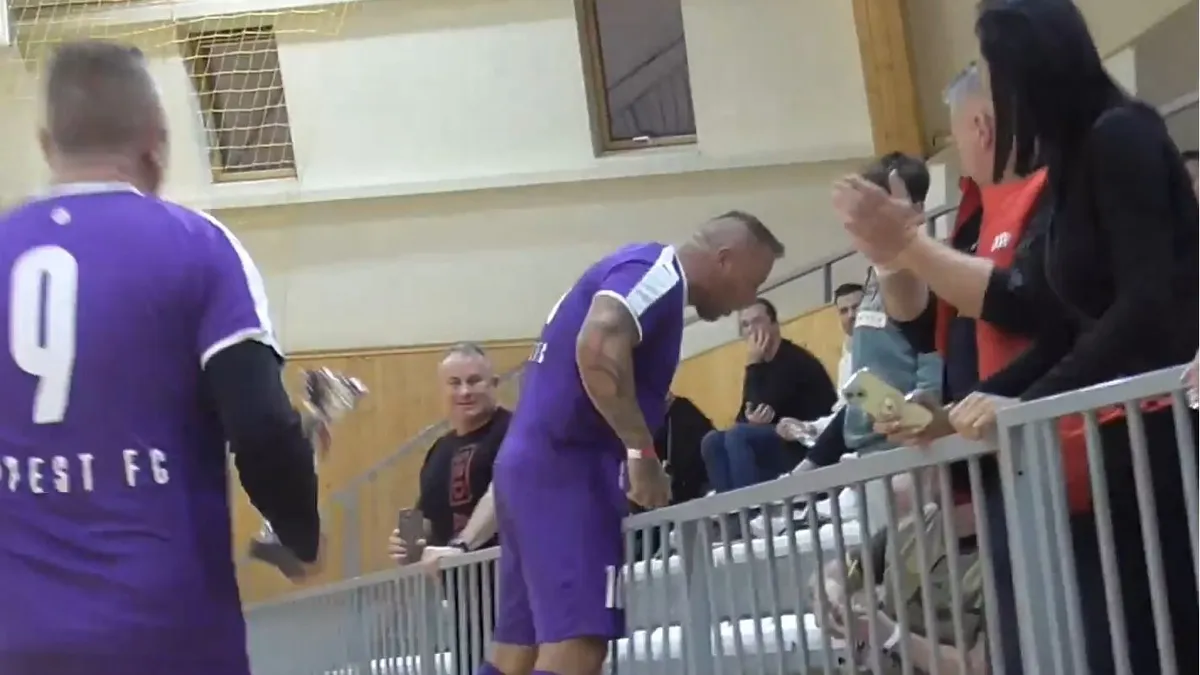
Curtis pofonvágta az őt gyalázó szurkolót a lelátón
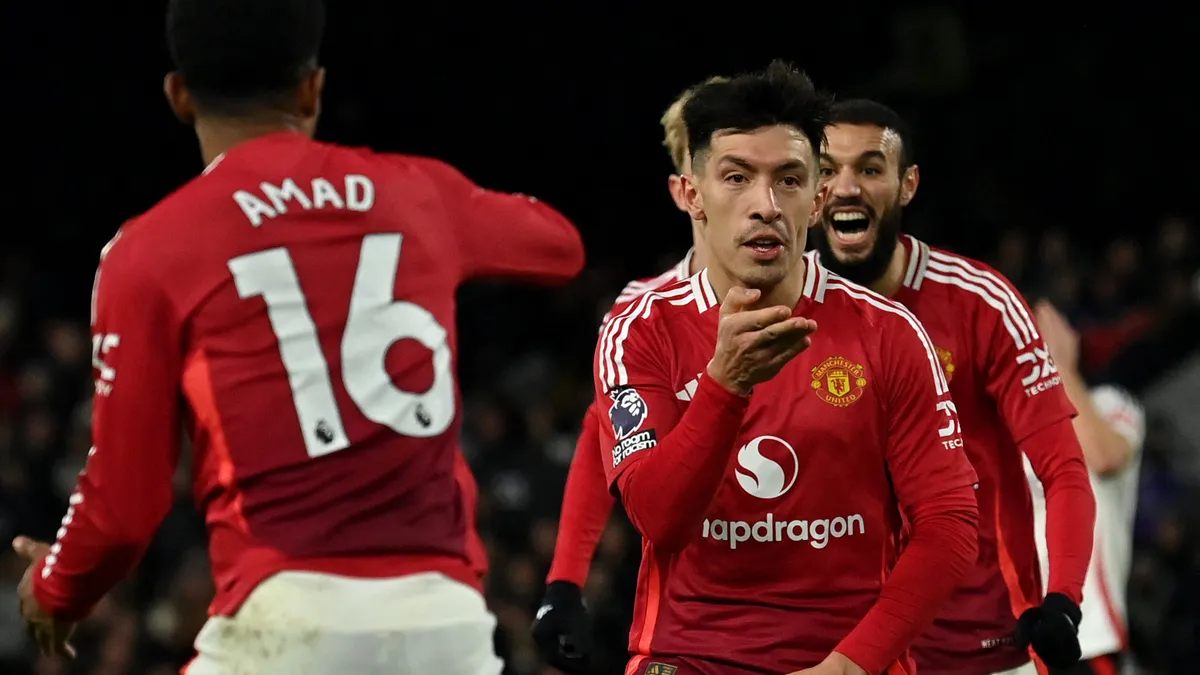
Az MU egyszer találta el a kaput, de egy szerencsés góllal így is nyert
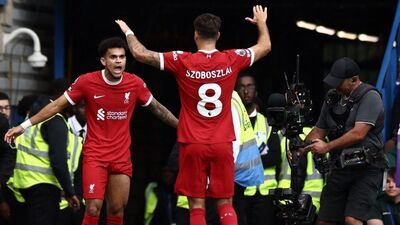
Ez nem hiányzott: Szoboszlai Dominik még egy világsztár miatt aggódhat!
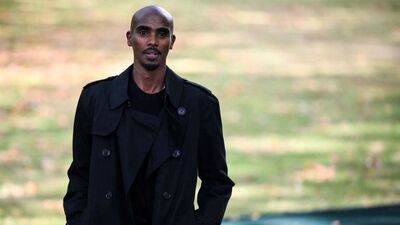
Milliárdokért árulja luxusotthonát az olimpiai bajnok

Villámgyors finomság – az 5 legjobb tejbegrízrecept
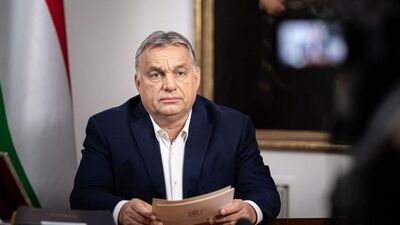
Orbán Viktor elutazik, ezen a helyen magyar kormányfő még nem járt
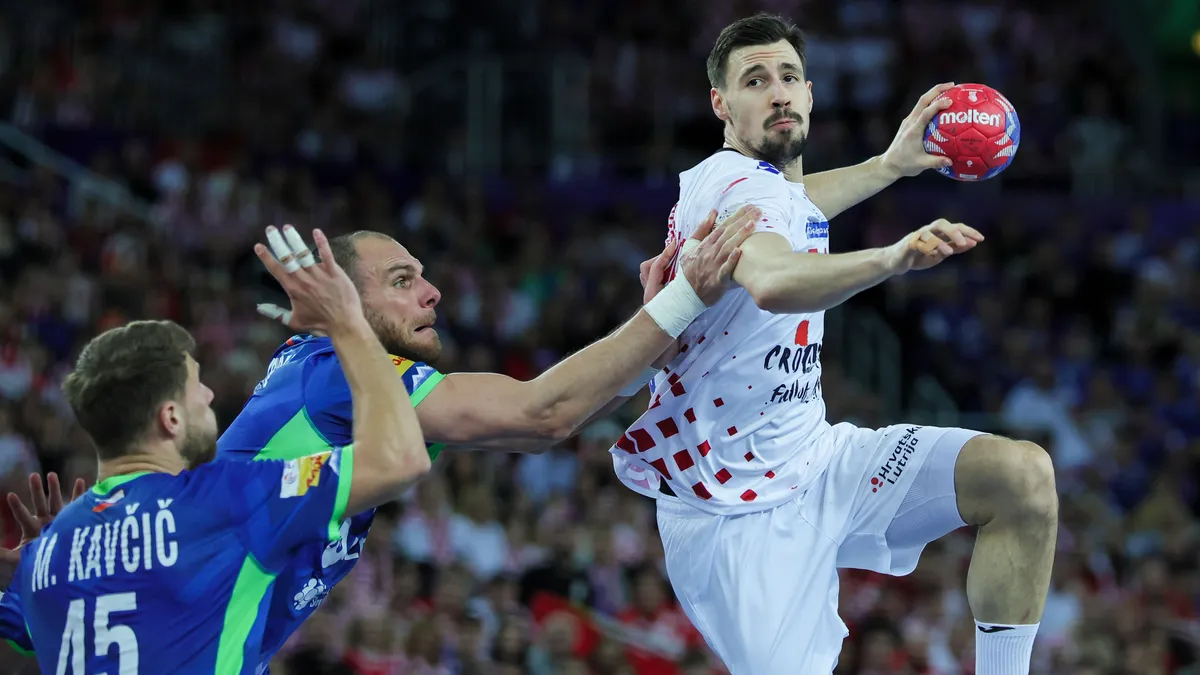
A szlovénokat legyőző Horvátország lesz a mieink negyeddöntős ellenfele kedden 18 órakor a kézi-vb-n
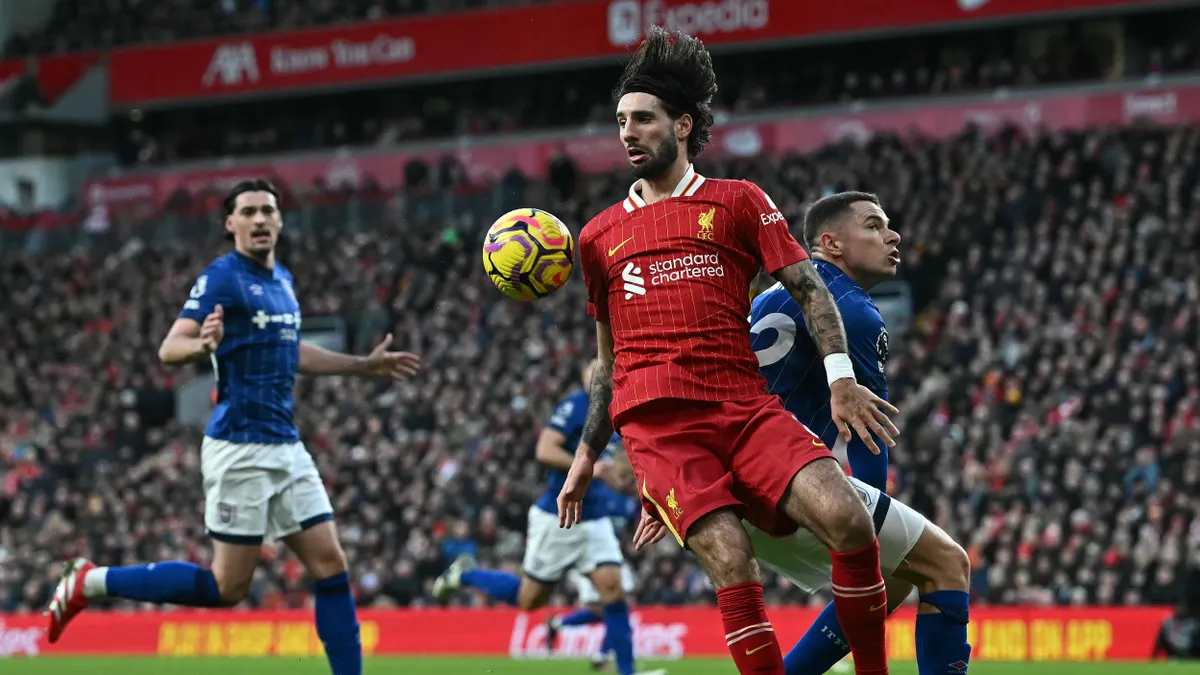
Szoboszlai szenzációs passzán ámul a világ - videó

A Chiefs újabb drámai meccsen nyert a Bills ellen – triplázás kapujában a Kansas City!
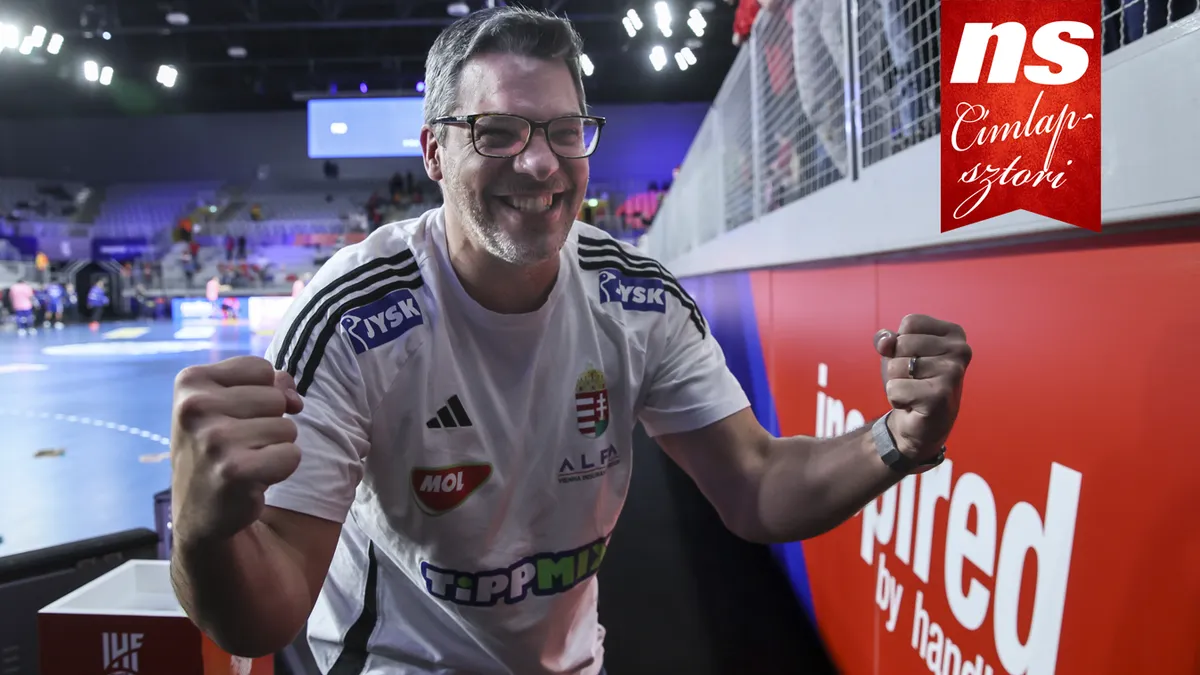
Chema Rodríguez: Óriási dolog, hogy sorozatban harmadszor ott vagyunk a nyolc között
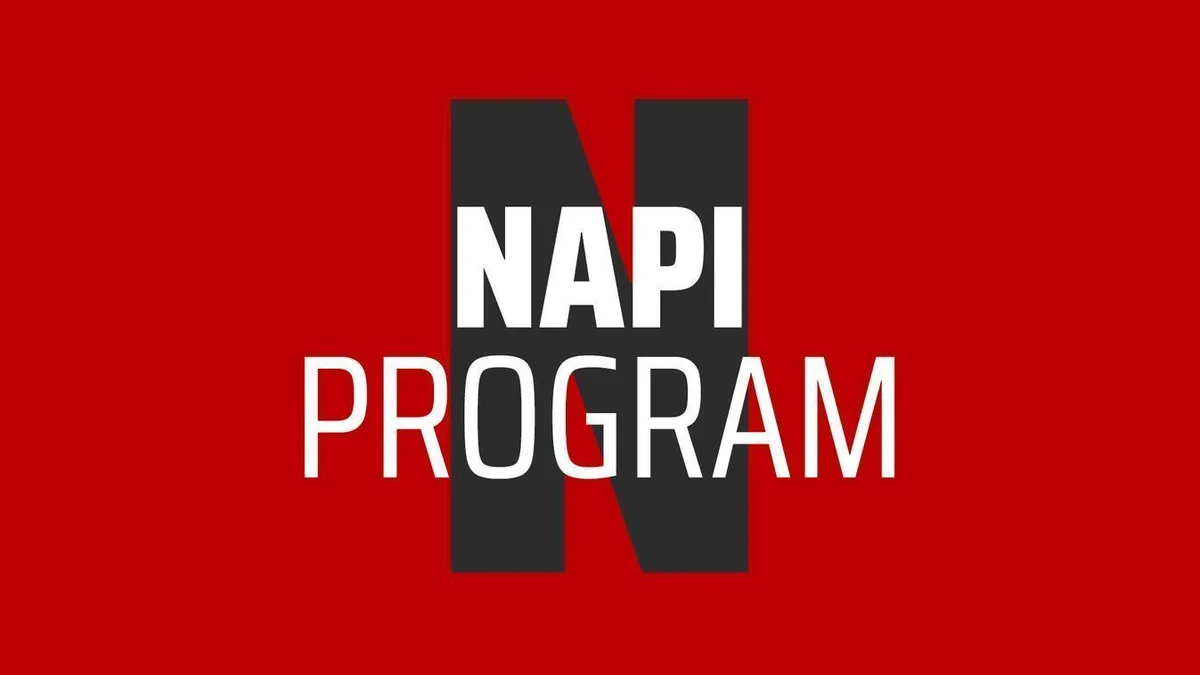
Hétfői sportműsor: olasz, spanyol és angol futball, magyar futsal
